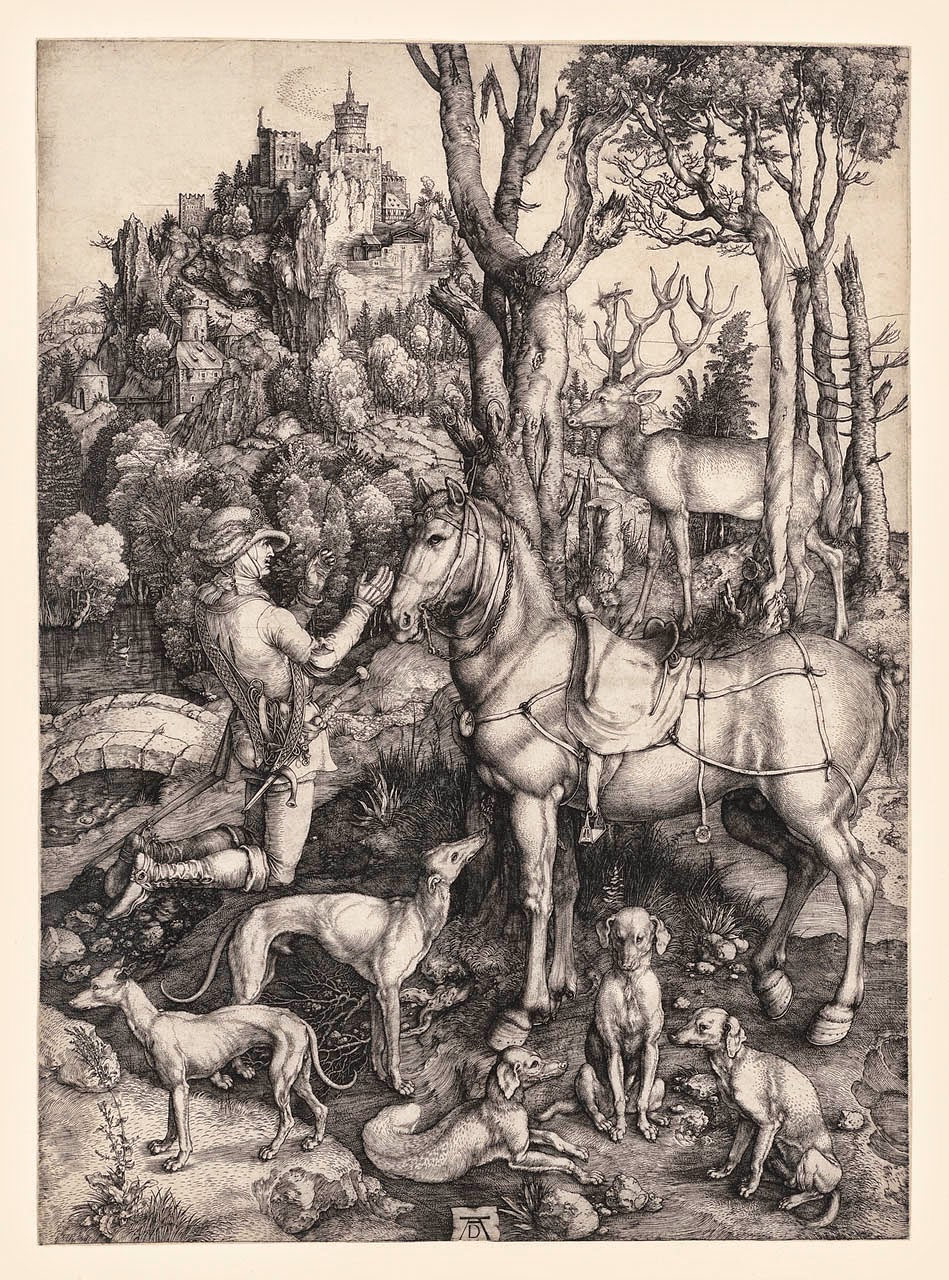Eustace
 |
| "Saint Eustace" by Albrecht Dürer |
Origin: Latin, Greek
Gender: Male
Meaning: "Fruitful"
Pronunciation: YOO-stis
Other forms: Eustache, Eustachus, Eustachius, Eustachio, Eustaquio, Eustacia
I know I am alone on this, but I find the name Eustace to be rather charming. It comes the Latin form of the Greek Eustachys, which means "fruitful". It has a few interesting namesakes, like Eustace Clarence Scrubb cousin of the Pevensie children, who joins Edmund and Lucy in Narnia once Peter and Susan grow too old. He is arrogant and whiny, but grows in personality throughout the books.
Another namesake is Saint Eustace, who in legend lived during the 2nd century, and was once a Roman general called Placidus. He goes out hunting in Tivoli, and sees a vision of a crucifix between the antlers of the stag he is hunting. He converts to Christianity, has himself and his family baptized, and changes his name to Eustace. His story there on resembles Job's from the Bible. Among the many unfortunate things that happen to him, his wealth is stolen, his family goes on a voyage and his wife, Theopista, is kidnapped by the captain, and while crossing a river, his sons, Theopistus and Agapius, are taken by a wolf and a lion. Despite this he never questions his faith. He is rewarded by being reunited with his family and his fortune is reinstated. He later refuses to make a Pagan sacrifice, and the emperor has Eustace and his family killed by being put into a bronze statue of a bull, or sometimes an ox. He is the patron Saint of hunters and firefighters, and is one of the patron saints of Madrid.



You're not alone. I like Eustace, too.
ReplyDeleteIt's growing on me. :)
ReplyDelete